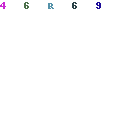Ukrainian professor offers non-Western perspective on Ukrainian revolution
Political science professor Sophia Wilson, who is originally from Ukraine, said now is a “time of troubles” for her home country. She presented an alternative to the Western media’s coverage of the Ukrainian revolution in a presentation to roughly 20 students last week.
November 24-29

Sophia Wilson, the newest political science professor, gave a lecture on Friday offering a different perspective of the revolution in Ukraine. Photo by Kari Williams
Peaceful protests have been a part of Ukraine’s history since it became a democracy in 1991. When then-President Viktor Yanukovych walked out on a trade deal with the European Union, that initiated protests with a “happy tone to it,” according to Wilson, to show that citizens “don’t quite agree” with Yanukovych’s decision.
But the government sending riot police to clear the streets at 4 a.m. on Nov. 30 saying they need to “prepare for [the] New Year celebration” and clear Central Square, changed the course of the protests, according to Wilson.
“As you can imagine, this was not welcomed by the population,” Wilson said.
December
Beginning in December, there were 500,000 to 800,000 protesters, and Western media talked about the protesters’ support of European Union. But Wilson said the protest underwent a “fundamental shift in discourse” at this point, saying the government’s use of force was unacceptable. Polls showed few were talking about the European Union.
On Dec. 11, riot police pushed the protesters out of the square, even using force. But protesters pushed riot police off the square, which was seen as a “protester victory.”
January
In January, the government used a different tactic to quiet the protesters. Wilson said dictatorial laws were instituted stating that citizens needed permission from the police to protest; they could have no more than five cars together; and the government could not be criticized in the media.
The government took the position that these laws were passed because Ukraine was “trying to be more like Europe,” Wilson said, but even “Europe was confused by that statement.”
“This was not welcomed,” Wilson said.
In mid-January, riot police were “running after people and beating them,” carrying them to trucks and detaining them because of “going against the new laws of the state.”
Jan. 22 was the first day the Ukrainian government and its police used violence during the day.
By late January, the opposition said it would offer amnesty to protesters, including the more than 300 people detained. The detained protesters would be free, according to Wilson, once citizens left government buildings.
February
In return, citizens wanted a promise to rethink the constitution that gave Yanukovych more power and moved Ukraine to a less democratic state. But on Feb. 18, Parliament changed its mind, prompting the people to go to the Parliament building demanding a change in the constitution.
Violence evolved on both sides in what Wilson called a “major turning point.” Police shot plastic bullets into people’s eyes and threw grenades into the crowds. The conflict “turned into a war against a police state,” according to Wilson, in which a trade union building serving as a medical facility was set on fire with people inside.
By Feb. 20 snipers with live ammunition accompanied riot police, according to Wilson.
“So many people will risk their lives to put an end to the police state,” Wilson said.
The international community became involved at this point to find a compromise, according to Wilson. But opposition leaders said they could not let Yanukovych rule another eight months and if he did not resign, they would go into the government building, according to Wilson. Yanukovych fled the country, but not before burning and throwing materials in the river documenting how much he had received in bribes.
“Ukranians always knew the government was extremely corrupt,” Wilson said.
But they were “willing to forgive” until the government used violence against its citizens.
Most recently, Yanukovych announced from Russia that he is still the Ukrainian president and the protesters are neo-Nazis.
Filed Under: Political Science












